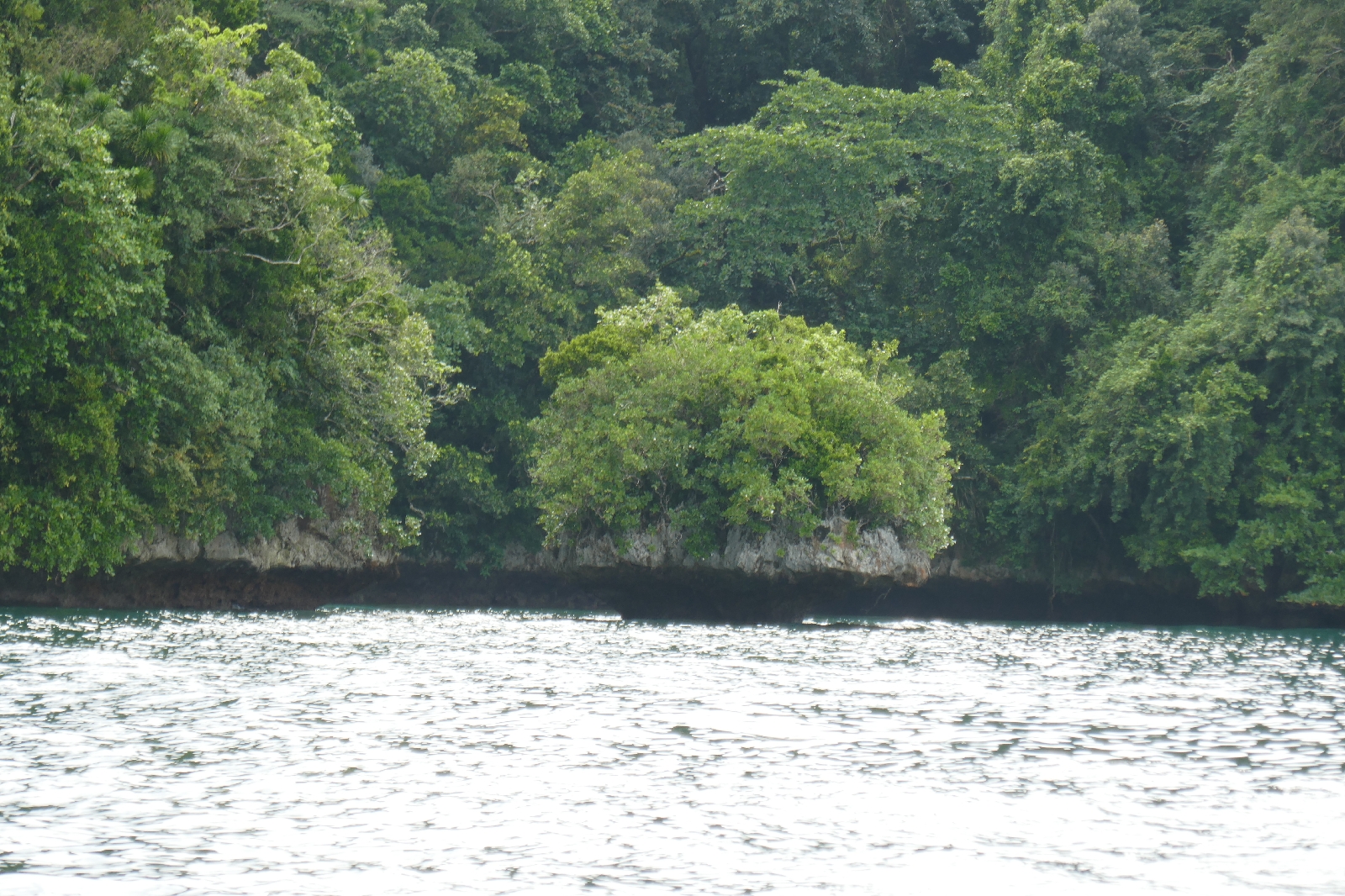Arrived in Palau, a small nation comprised of some 200 islands, just after midnight. Palau reopened a few months ago, having been closed to visitors for more than 2 years due to Covid. The passport entry stamp is a pledge written by the children of Palau:
Children of Palau,
I take this pledge,
as your guest,
to preserve and protect
your beautiful and unique
island home.
I how to tread lightly,
act kindly and
explore mindfully.
I shall not take
what is not given.
I shall not harm
what does not harm me.
The only footprints
I shall leave are those
that will wash away.
The immigration officer stamp the pledge in my passport and made me sign it before admitting me (1).
Wandered to a dive & tour shop this morning. "No tours today. Our boats are in the shop for maintenance." Enquiry at the hotel front desk yielded a snorkeling tour with space available (2). There were three Taiwanese and another American (3). Before departing, we had to buy a pass to enter the national park; while nobody checked the passes, everyone took the process seriously.
The first stop was the "milky way," with crushed limestone sand on the sea bottom that people rub all over themselves to take pictures to post on social media. I noted the care with which the guides washed off the docks before leaving.
The tour stopped at three snorkeling sites above coral reefs. The two other boats doing similar tours all cooperated to ensure no overcrowding. The vibrant colors of the fishes and corals were beautiful.
I was admiring a luminescent blue piece of coral when it moved; a crab apparently that slips into the crevices of the coral. At one stop, Grant (our guide) said "Nemo's here." I thought I misheard him, but he was referring to the clown fish, which is the species depicted in the movie Finding Nemo. Swimming at a beach, a group of sharks swam over.
On the ride back, we stopped at a natural arch, where the limestone had worn sway. At a natural cave, the Japanese had stored fuel during WW2; the charred remnants are still there.
Overall, there is a very nice ethos here in Palau. People seem to appreciate where they are, and respect the environment. The relative small number of visitors probably helps; there is one daily flight to Guam, two flights per week to Manila, and one flight per week to Taipei.
(1) I hopped in the hotel shuttle and noticed the right side steering wheel. Although they drive in the same side as in the States (being a former American protectorate), most of the cars have a steering wheel on the wrong side. Most cars here are used vehicles imported from Japan, where the population likes newer cars, creating a glut of late model used vehicles with right side steering wheels.
(2) A popular tour in Palau goes to swim at Jellyfish Lake. Long ago, the lake was separated from the sea by volcanoc activity. The jellyfish trapped in the lake faced no predators, and they evolved to be stingless. Due to overuse (especially of sunscreen) by visitors, the jellyfish population was threatened, and the lake was closed to visitors for a few years to permit the population to regrow. This tour was not available, which was OK for me; let them rest.
(3) As it happens, he also booked the snorkel tour this morning. He was on my flight from Guam last night and we are on the same flight to Manila tonight. He was flying standby yesterday to Manila and they offered him either a night in Guam or a night in Palau.
Palau, with its 18,000 residents is divided into 16 states, the smallest of which (Hatohobei) has population of 25.
Japanese anti-aircraft gunNight flight to Manila. Sitting at the gate, I noticed the runway lights come on, signalling that the plane was within range (4)
(4) No need to leave the lights on all night for one plane.









No comments:
Post a Comment